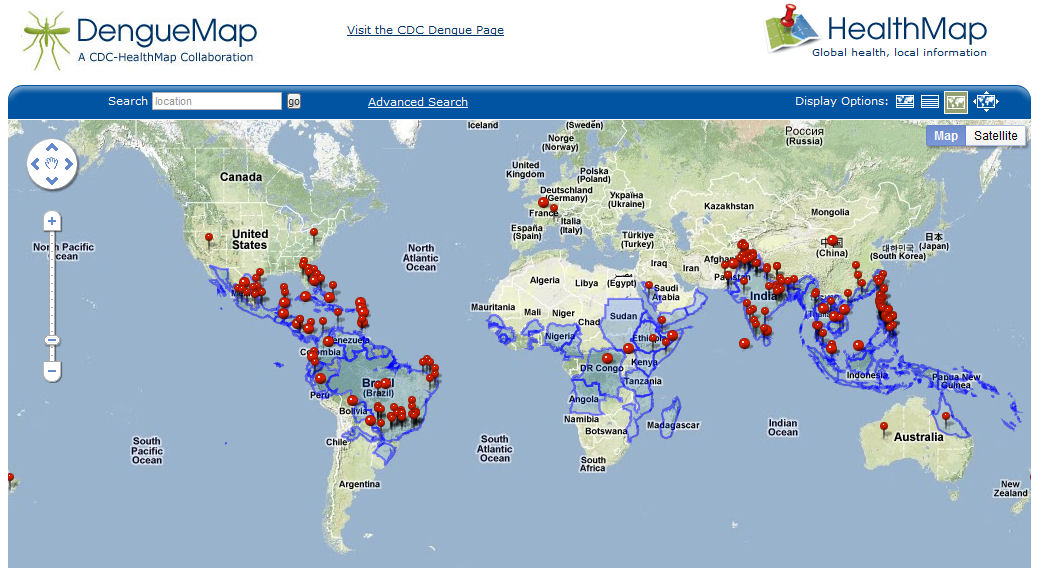Ah the tropics. The travel destination ‘sweet spot’ with continual warmth, endless sunshine, and swaying palm trees. What could go wrong on a tropical paradise trip?
According to the CDC, coming home with dengue hemorrhagic fever (DHF), also known as ‘breakbone fever’, is a high possibility.
Dengue Fever Facts
A few quick facts:
- dengue is caused by one of four related viruses, which are transmitted by mosquitoes
- those living and traveling in the tropics and subtropics are at risk of dengue infection
- as many as 100 million people are infected each year (according to the CDC)
- there is no dengue vaccine and no specific medications to treat dengue infection
- adequate dengue treatment usually requires hospitalization
Since the 1950s, dengue has emerged as a worldwide problem and a leading cause of illness and death in the tropics and subtropics (the geographical regions immediately north and south of the tropics). Although dengue rarely occurs in the continental United States (so far), it is endemic in Puerto Rico and many popular tourist destinations in Latin America and Southeast Asia.
Symptoms and Treatment
Primary symptoms of dengue include a high fever and at least two of the following:
- severe headache
- severe pain behind the eyes
- significant joint pain
- muscle and/or bone pain (hence the name ‘breakbone fever’)
- rash or red spotty patches on the skin
- mild bleeding (often through the nose or gums) or easy bruising
While there is no specific treatment for dengue infection, people who believe they have it should use analgesics (over-the-counter pain relievers) with acetaminophen to ease the pain. They should also incorporate rest, drink plenty of water, and consult a doctor as soon as possible. In many cases, treatment will require hospitalization.
Prevention Tips
Reducing your risk of infection is entirely about avoiding mosquito bites:
- avoid or eliminate standing water (think puddles, pet bowls, flower vases)
- wear insect repellent with DEET, picaridin, oil of lemon eucalyptus, or IR3535 as the active ingredient
- insist on air conditioning or at least secure, intact screens at your accommodations
- implement mosquito traps and repellent devices

